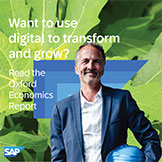Generation Z and Millennial consumers are more likely to pay a premium for products that are legitimately sustainable in some way, from materials to packaging to delivery. The third annual Consumer Sustainability Survey from Blue Yonder, a digital supply chain platform, confirms that sustainability remains a priority for all consumers. However, younger shoppers are more definitive and consistent in their choices, with 85% of Gen Z and 84% of Millennials reporting that sustainability considerations are important to them.
"It's especially promising that so many respondents are willing to spend more for sustainable products, given that price concerns, exacerbated by the ongoing challenge of inflation, have marked conversations around consumer behavior over the last year," said Saskia van Gendt, Blue Yonder's chief sustainability officer, in a statement. "Their willingness to spend more should send a clear message to brands and retailers that investing in sustainable solutions and practices is worthwhile, not only for the planet but also for maintaining consumer loyalty and trust."
78% of U.S.-based poll respondents said that sustainability concerns are very or somewhat important to them when choosing to buy a product or shop at a retailer. And 70% of consumers said they have shopped at a retailer promoting their products as sustainable at least once in the past six months. Almost half (47%) reported that their interest in shopping sustainably increased in the last year, and 40% said they would pay up to an additional 5%, and 25% said they would pay an additional 10% or more.
Skepticism about sustainability claims remains high
Interestingly, consumer skepticism remains high regarding sustainability marketing and messaging. If consumers are going to pay more, they need to verify claims for themselves.
Nearly half (48%) of respondents said they can only "sometimes" trust a brand's sustainability claims, depending on its message, brand reputation and history. More than one-third (35%) of respondents said they do not trust brands' claims, citing the need for their own additional research (21%) and the belief that brands tout sustainability regardless of whether it aligns with their actions (14%).
An ESW report released in April said that US consumers are less sustainability-minded than they were just one year ago. The overall score dropped from 51 on the index to 49, and lagging behind the global mean of 55. However, US Millennials (59) and Gen Z (57) scored above the global mean, whereas Gen X (50), and Boomers (35) scored lower.
Globally, consumer trust in sustainability claims is low, which could be adding to lowered interest in sustainability overall. According to The Blue Yonder survey, 70% reported shopping sustainably in the last year, vs. 74% in 2023. The ESW numbers reveal that, globally, more than half of the consumers surveyed (55%) said they are more aware of greenwashing than they were a year ago, and 27% said they considered a brand's environmental transparency record when making a purchase.
Consumer trust and truth in advertising are key to a healthy economy, which is why greenwashing is so harmful. If consumers can't discern which companies are truly engaged in ethical environmentally-friendly commerce, they won't support the industries making the most positive impact. To that end, Two Sides has engaged with more than 300 North American companies to combat misinformation by changing or removing misleading environmental claims used to promote electronic services over paper-based communications. Globally, the Two Sides Anti-greenwashing Campaign has persuaded more than 1,180 companies, government agencies and other organizations to remove statements that are unsubstantiated.
Greener packaging is a priority
According to the Blue Yonder survey, 47% of consumers said they would be likely or very likely to pay more for greener shipping options such as lower carbon footprint delivery and sustainable packaging. 61% of consumers said using recycled content or recycled packaging was the most important environmental practice a retailer or brand should adopt.
According to TSNA's own research released in 2023, in addition to expressing an overall preference for paper-based packaging, 56% of consumers prefer that items ordered online be delivered in paper packaging, up from 52% in 2021. 50% say they are actively taking steps to increase their use of paper-based packaging, up from 41%. 47% would avoid shopping with a retailer that is not actively trying to reduce its use of non-recyclable packaging, up from 39%.
Overall, the data underscores consistent consumer behavior toward sustainability, particularly among younger generations. Generation Z and Millennials' willingness to pay a premium for sustainable products sends a clear message to brands and retailers about the importance of investing in sustainable solutions. Greener options and the use of recyclable materials have become increasingly pivotal, with a significant portion of consumers willing to pay more for sustainable options.
While skepticism persists regarding sustainability claims, consumers prioritize transparency and ethical practices, highlighting the necessity for truthful advertising. Ultimately, fostering consumer trust and aligning with environmentally friendly practices not only benefits the planet but also strengthens brand loyalty, thus contributing to a healthier economy.






















